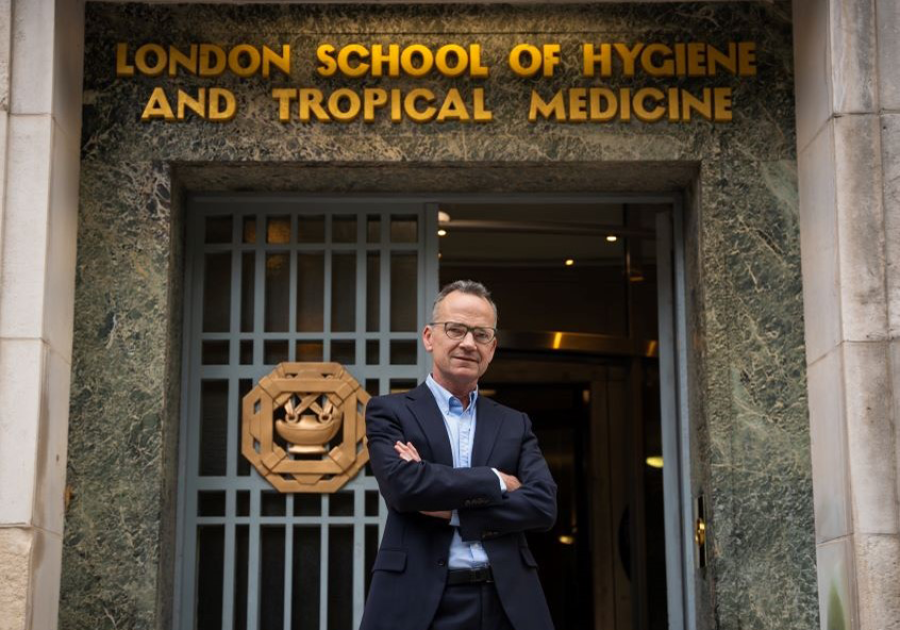LSHTM Director: 2025 must be the year we join together to fight health misinformation
20 January 2025 London School of Hygiene & Tropical Medicine London School of Hygiene & Tropical Medicine https://lshtm.ac.uk/themes/custom/lshtm/images/lshtm-logo-black.png
Liam Smeeth in a dark suit stood with arms folded outside the entrance to LSHTM's Keppel Street building
Professor Liam Smeeth, the Director of the London School of Hygiene & Tropical Medicine (LSHTM), has warned that vital public health areas such as pandemics, vaccines, climate and health and reproductive health “are at risk of being overwhelmed” by a new surge of health misinformation.
He has urged universities and research institutions around the globe to step up the fight against unprecedented misinformation attacks on public health interventions that, the vast majority of experts agree, save millions of lives each year.
Misinformation is incorrect or misleading information. This can be ‘fake news’ shared deliberately for fun or profit (disinformation) or political ends (propaganda) or shared out of genuine belief.
A new report from The World Economic Forum ranks misinformation and disinformation as the top global risk over the next two years, ahead of both extreme weather and state-based armed conflict.
Professor Smeeth said: “That misinformation and disinformation topped this ranking of global risks should be a wake-up call to institutions around the world that we have to become more agile and effective in our responses to dangerous health misinformation or risk a repeat of the kind of ‘infodemic’ we saw during the COVID-19 pandemic that put lives at risk.”
Last May, Professor Smeeth spoke out about the need to ignore misinformation circulating about the proposed WHO pandemic treaty, designed to help fight the next pandemic, that Member States were ultimately unable to reach agreement on.
His intervention came as LSHTM developed its own plans to tackle health misinformation in 2025 and, as part of this, published a set of communications principles to help staff looking to respond to health misinformation on key topics such as pandemics, vaccines, climate and health, and reproductive health.
Professor Smeeth said: “These vital areas for public health are at risk of being overwhelmed by a new surge in misinformation attacks that threatens to drown out life-saving public health advice and damage the public trust in experts who themselves are increasingly being targeted for simply talking about the scientific evidence.
“Public health depends on us being committed to our shared health while also being mindful of the needs and vulnerabilities of individuals. This is essential if we are to create a healthier, more sustainable and more equitable world.
“I’m convinced that leading public health institutions around the world have to make 2025 the year we join together to fight health misinformation in all its forms and protect our shared health. Bold action is needed, and LSHTM is redoubling its efforts to resist health misinformation attacks being generated and shared by powerful groups and individuals.
“But no institution can solve this problem alone. We need universities, research organisations, charities, and public bodies to join the fight and ensure we can do what matters: communicate the best available health information to health professionals and the public.”
LSHTM’s counter-misinformation principles for communications
Decide your threshold: LSHTM cannot respond to every misinformation attack. A response to misinformation about key topics should be considered if it is both spreading widely and being shared by influential people/groups and likely to cause significant health harms or have a significant negative effect on LSHTM’s work in this area.
LSHTM has identified four key topics related to its work at high risk of misinformation attacks: pandemics, climate and health, vaccines, reproductive health/women’s health.
Choose your audience: Consider which audiences you are trying to influence. Directly targeting those generating misinformation is unlikely to work and will only fuel polarisation. Targeting the large audience of undecided ‘don’t knows’ on any issue and, for example, persuading them not to share misinformation is a more effective strategy.
Engage with empathy: Any response should recognise that people sharing misinformation may be doing so out of genuine concerns and address those concerns sensitively. Instead of tackling core beliefs head on, which is likely to provoke a negative reaction, try a neutral framing of the topic (for example: “find out more…”, “the facts about…”) with accessible facts, stats, and links to credible sources people can investigate themselves.
Quarantine the attack: Only ever repeat a misinformation attack in a weakened form, otherwise you risk spreading the very misinformation you are trying to contain. If you are giving details of false claims always surround a weakened version of the misinformation with facts, strong counter-arguments, and links to credible sources.
Demonstrate consensus: People’s understanding of complex science is closely linked to their perception of whether or not there is scientific consensus on an issue, so wherever possible provide evidence of consensus.
Build trust: Earn the trust of your audience by ‘showing your working’ at every turn and explaining the evidence clearly, accessibly, and honestly, including areas where there are real problems or uncertainties.
If you enjoyed this article and would like to build a career in global health, we offer a range of MSc programmes covering health and data, infectious and tropical diseases, population health, and public health and policy.
Available on campus or online, including flexible study that works around your work and home life, be part of a global community at the UK's no.1 public health university.